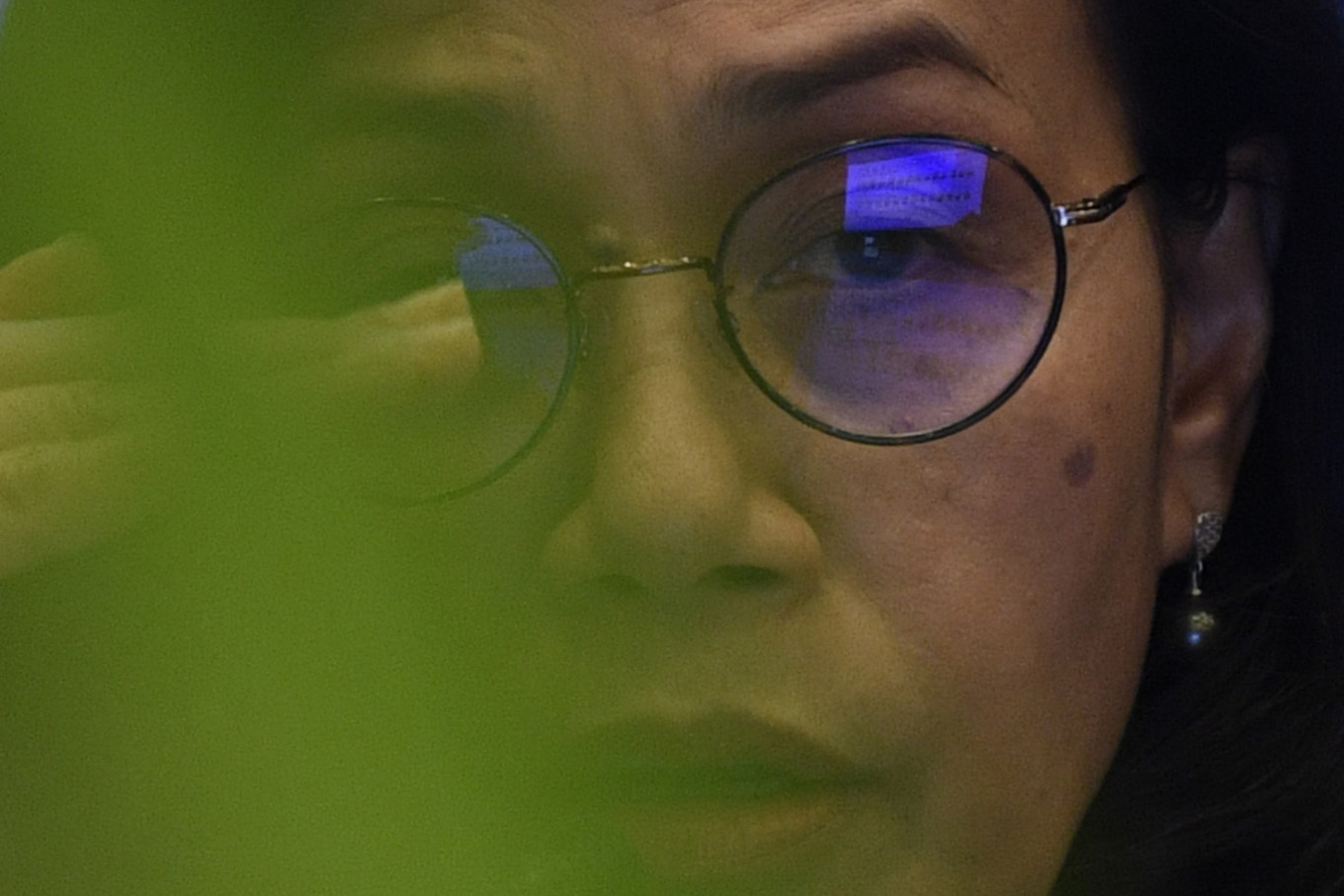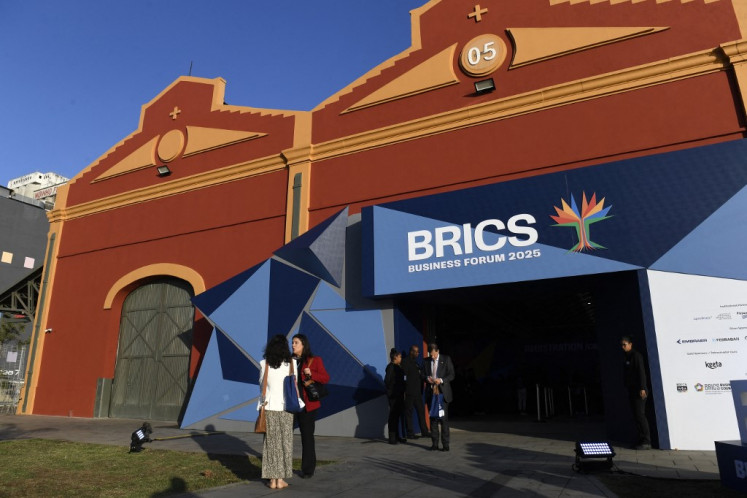Popular Reads
Top Results
Can't find what you're looking for?
View all search resultsPopular Reads
Top Results
Can't find what you're looking for?
View all search resultsGovt rolls out $43b stimulus in bid to rescue economy
Finance Minister Sri Mulyani Indrawati said the “national economic recovery” program would include a strengthened social safety net, tax incentives, capital injections into SOEs and interest rate subsidies for MSMEs, among other measures.
Change text size
Gift Premium Articles
to Anyone
T
he government is rolling out a Rp 641.17 trillion (US$43 billion) economic recovery stimulus, bigger than previous allocations, to soften the impact of COVID-19 on micro, small and medium enterprises (MSMEs), as well as state-owned enterprises (SOEs).
Finance Minister Sri Mulyani Indrawati said the “national economic recovery” program would include a strengthened social safety net, tax incentives, capital injections into SOEs and interest rate subsidies for MSMEs, among other measures.
“The government will accelerate spending to help MSMEs and SOEs, apart from a consumer spending stimulus and tax incentives for industry,” Sri Mulyani said during a streamed news conference. “These efforts aim to stimulate the supply and demand sides for economic recovery.”
The government will revise again the 2020 state budget to accommodate the stimulus as it expects the budget deficit to further increase to 6.27 percent of gross domestic product (GDP), larger than the initial plan of a deficit amounting to 5.07 percent of GDP as stipulated in Presidential Regulation No. 54/2020.
Sri Mulyani said the widening budget deficit was warranted as government revenues may drop by Rp 69.3 trillion to Rp 1.69 quadrillion, while the government boosts state spending by Rp 106 trillion to Rp 2.72 quadrillion.
“State income will drop as a result of bigger tax incentives and weakening economic sectors and commodity prices,” Sri Mulyani told reporters. “Meanwhile, we will boost state spending to strengthen the economy against the COVID-19 pressures.”
Read also: Government issues regulation on economic recovery program, focuses on SOEs, MSMEs
The government is planning a Rp 149.29 trillion bailout for 12 SOEs, mostly as cash compensation and working capital investments, to reduce the impact of the virus crisis. The funding includes Rp 48 trillion in compensation for electricity firm PLN, Rp 45 trillion in compensation for oil company Pertamina and Rp 8.5 trillion in working capital for flag carrier Garuda Indonesia.
“This will serve as support for SOEs affected by COVID-19 including from supply chain disruption, falling demand and operations, as well as the severe financial impact,” said Sri Mulyani. The stimulus will be targeted at SOEs with strategic roles, she added.
“We will involve the Supreme Audit Agency [BPK] and the Corruption Eradication Commission [KPK], among others, to oversee the operation and ensure the functionality of the SOEs,” the finance minister said.
The government will also provide Rp 34.15 trillion worth of loan repayment subsidies for around 60 million borrowers to cope with the pandemic. Rp 87.59 trillion will also be allocated for banks to support their loan-restructuring programs.
It is also planning to provide Rp 172.1 trillion for the social safety net, far higher than the previous plan of Rp 110 trillion, as well as increasing its tax incentives program to Rp 123 trillion from the initial plan of Rp 70.1 trillion.
The decision to increase the social safety net comes as the government expects from 1.89 million to 4.89 million individuals to fall below the poverty line. Meanwhile, 3 million to 5.23 million individuals may lose their jobs as the pandemic brings economic activity to a standstill, according to official estimates.
Sri Mulyani said the government was sticking by its forecast that the economy may grow at 2.3 percent, or contract by 0.4 percent this year in a worst-case scenario. The country’s economy grew by 2.97 percent in the first quarter this year, the weakest since 2001 and lower than consensus estimates.
Indonesian Chamber of Commerce and Industry (Kadin) deputy chairwoman Shinta Kamdani welcomed the government’s move to hike the economic stimulus, however, it still might be too little to support businesses.
“The amount falls short of our expectations of defending the economy until the virus threat subsides,” Shinta told The Jakarta Post.
Read also: Indonesia must boost recovery spending to $40b to keep businesses afloat: Kadin
The government would need Rp 400 trillion for health care, Rp 600 trillion for social safety net programs and Rp 600 trillion for economic recovery, she added.
“As the stimulus will not be enough, our projections of bankruptcies and layoffs remain high,” said Shinta.










